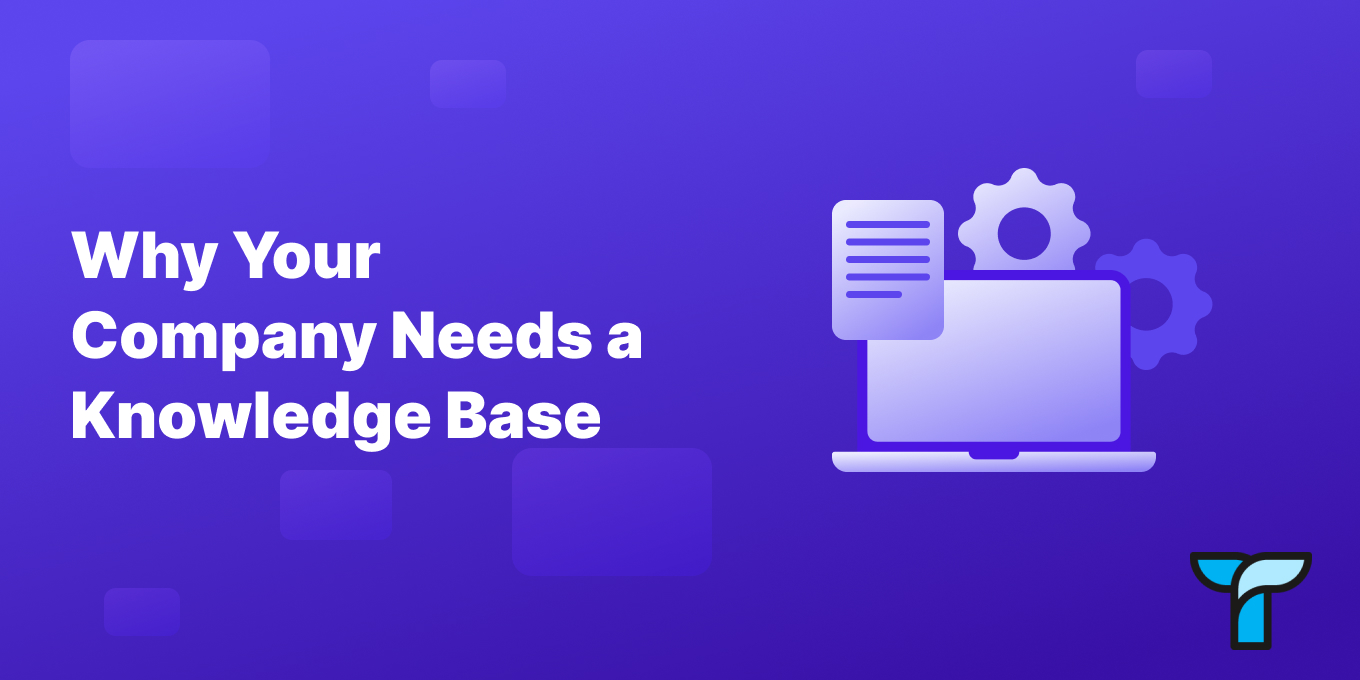As companies grow more complex over time, the wealth of practical and institutional knowledge builds up.
Being able to collect and organize this valuable information can bring concrete benefits to the individual employees, the organization, and, of course, to the corporate bottom line.
But isn’t Google Docs enough?
No, it’s not. Here’s why:
How Do You Know If You Need a Knowledge Base Solution?
1. Poor customer support
If your customer service ratings are dismal, an external knowledge base can act as a new support channel. Instead of calling the support hotline or waiting for a chat support agent, customers can simply look up the information they need to solve the issue on their own.
If your customer service ratings are dismal, an internal knowledge base provides a hub for your customer support reps to find answers fast.
Different than an external knowledge base, with a tool like Tettra your team can ask questions from your team and then save those answers for future use–internally.
It’s not just about customer inquiries though
Think of SOPs, internal processes, feature updates, and product release notes.
2. Growing complexity
As the organization grows, so do the teams and departments, each with their own specialized fields. This can lead to information silos, where valuable knowledge is left unused instead of being shared for the benefit of those who may need it.
3. Fragmented or contradictory information
Information can get scattered, leading to lost productivity. Worse, it can even be contradictory, with different parties following different rules and interpretations of the same subject. The knowledge base acts as a single source of truth, so that all information it contains has been checked, verified and agreed upon by all parties.
4. Knowledge drain
Each time an employee leaves or retires, they take with them years of valuable knowledge and experience. This expertise can be captured by a knowledge base so that it gets passed on to future members of the company.
5. Training and development are not optimized
New hire orientation can be done faster and more efficiently when onboarding materials are contained in a knowledge base. Similarly, promotions and transfers can be accomplished more quickly and conveniently when the employee can access the training modules from the knowledge base.
These and other issues are typically solved by implementing a knowledge management strategy, with the end result being a knowledge base that is comprehensive, accurate and easy to use for everyone.
What are the Benefits of a Good Knowledge Base Software?
A good knowledge base software can bring a ton of benefits to your business, making it worth more than the initial time and investment required. These benefits include:
1. Improved customer service
✓ Gain another customer support channel
✓ Streamline support issues by enabling customers to solve issues on their own
✓ Filter out minor solvable issues, so that your agents can focus on more serious ones
2. Higher productivity
✓ Employees spend less time hunting for information
✓ Customer support teams spend less time on minor issues
✓ Increased communication and collaboration
3. Unified source of truth
✓ Knowledge becomes codified: no more contradictory facts
✓ Information is checked and verified before becoming part of the base, making it more accurate and reliable
4. Knowledge gets retained
✓ The brain drain is minimized when employees leave or retire
✓ Best practices are recorded and can be improved upon
5. Better training and development
✓ Onboarding becomes faster and standardized
✓ Vertical and lateral training is more efficient
6. Increased bottomline
✓ Better customer support means higher customer satisfaction and retention
✓ Employees are less frustrated and have better workplace satisfaction
✓ Teams and departments can work in harmony together
✓ Knowledge retention and best practices allow for better business performance
How To Choose the Right Knowledge Base Software
There is no single best knowledge base software: each comes with its own unique features, designed to fit different needs. As such, the best knowledge base software is the one that best fits your organization’s specific needs.
Here’s how to choose the right knowledge base solution for your business.
✔ Good search function
The knowledge base is only as good as its search capability. To be effective, it should be able to answer the query posed by the employee or customer accurately. To do this, it should ideally support deep searches, and make use of detailed search parameters.
✔ Intuitive UI
The software or portal must be easy to use and have an intuitive interface, even for novice users.
✔ Good content management
Contributors should be able to submit and edit content quickly, while editors and admins in charge of the knowledge base should be able to edit and publish content efficiently and conveniently.
✔ Robust access controls
For internal knowledge bases, the software should possess adequate access and permission controls for information security. For customer service knowledge bases, the portal should be protected from unauthorized revisions by external actors.
✔ Integration
Make sure your chosen vendor integrates with your existing productivity tools. This could be anything from your CRM software to messaging tools.
Get more tips on knowledge bases from Tettra:
- Simple guide to internal knowledge bases
- What is a company knowledge base?
- Internal vs external KB and why you need both
- 9 top AI knowledge base software
- 11 best knowledge base software to check out
Why Choose Tettra for Your Knowledge Base
Tettra is a good example of an internal knowledge base software that possesses all of the five attributes important to have in a knowledge base solution.
It has strong search and content management functionalities; it has good access and permission controls; it integrates with popular enterprise apps like Slack and Google Docs; all wrapped up in an easy-to-use interface that is intuitive even for non-technical users.
Take a look at the story behind Basis365, an accounting firm. They were publishing company policies in a PDF that became unwieldy and impossible to manage as the team grew. Basis 365 needed a simple, searchable solution that would allow the entire team to access the most current version of the company’s SOPs, and which would enable them to deploy any new changes quickly and easily.
“Tettra has really helped generate efficiency and removed the redundancy of answering the same questions over and over again.”
Mike Doan, Co-Owner of Basis365
With Tettra, you’ll get:
- AI-powered knowledge management for instant answers to your team’s questions, from your company docs
- Q&A workflow to capture questions
- Knowledge base to document answers
- Knowledge management features to keep content up to date.
- Integrations to Google Drive, Slack, MS Teams, Zapier, and Github to make sure your team actually uses Tettra


